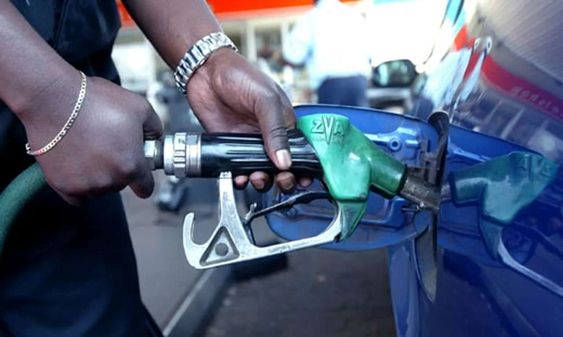Nigeria
Why fuel shortages will persist until January: Marketers

According to oil marketers on Friday, the Christmas and New Year celebrations may be impacted by the recurring presence of lines of anxious drivers at gas stations searching for Premium Motor Spirit, also known as gasoline.
Additionally, it was reported that oil marketers were now allowed to sell gasoline at any price as the Federal Government no longer prohibited them from doing so at a set price.
Since January of this year, fuel lines have continued to form and dissipate despite oil marketers raising the price of the product without receiving Federal Government clearance or facing fines.
The Federal Government, via its Nigeria Midstream and Downstream Petroleum Regulatory Authority, opted not to comment on the situation.
Inquiries on the statewide shortage of gasoline were not answered by agency representatives via phone calls or text messages sent to their cell phones.
Similar to this, Nigerian National Petroleum Company Limited, the only importer of PMS into the nation, has declined to comment on the situation.
However, according to the NMDPRA’s assessment on product sufficiency released on Thursday, the country has 33.17 days’ worth of PMS as of November 24, 2022. In addition, it said that 2.1 billion liters of gasoline were still available despite lengthy lines around the country.
Oil marketers, however, disagreed with the government and said that there had been issues with logistics and the importer’s single supplier, the national oil corporation, supplying goods.
They said that all these worries might cause the present fuel lines to continue into December. They also claimed that certain new charges had been established in the downstream oil industry, which had led to an increase in the ex-depot price of gasoline.
The official continued, “Pipeline costs, which were formerly 50 kobo per litre, are now N1 per litre. Now, in contrast to the NNPC’s recommended rate, these levies compel depot operators to raise their ex-depot pricing.
If nothing concrete is done to solve the issues, the crisis in the downstream sector “may linger until December or perhaps beyond” because of these and other worries.
The marketer said, “Nobody cares about how much you sell today,” when asked whether the government was no longer interested about the price of gasoline at the pump. Because of this, you cannot assume that the NNPC ex-depot rates are the identical across all depots.
There have been certain pricing modifications recently, which the NNPC is unable to handle and must be passed along to marketers.
This explains why individuals sell things at varying prices.
The lack of foreign currency is another obstacle to the delivery of petroleum products, according to Ukadike Chinedu, National Public Relations Officer of the Independent Petroleum Marketers Association of Nigeria.
He added, “You interviewed me a while back, and I remember telling you that petrol will retail for N200 per litre. With that sentence, you truly didn’t feel at ease.
“Several stakeholders phoned you to respond to that publication after it was released. Some of them phoned me as well to ask why I had said that fuel would be sold for that amount. But at the time, I was simply basing my discussion on the industry’s indexes.
“I can study the government’s policies about the distribution of goods in the downstream oil sector since I am a PRO of IPMAN in Nigeria.
You consider the dollar to naira exchange rate, a few international interruptions, and the cost of petrol.
Since Nigeria does not produce refined goods, all of these factors unquestionably impact the cost of petroleum products.
We are unable to continue importing gasoline.
“If not, phantom queues will continue to appear each month and may do so through the end of this year. The refinery repairs need to be completed as soon as possible. We are meeting, nonetheless, and want prompt action.
Zarma Mustapha, IPMAN’s Deputy National President, said that although attempts were being made to resolve the issues, it was anticipated that the lines would persist until December.
“The on-and-off lines are caused by logistical problems with the delivery of the product to the retail outlets from either the mother vessel to the private depot owners, and from there to independent and large marketers’ stations,” he claimed.
(PUNCH)
